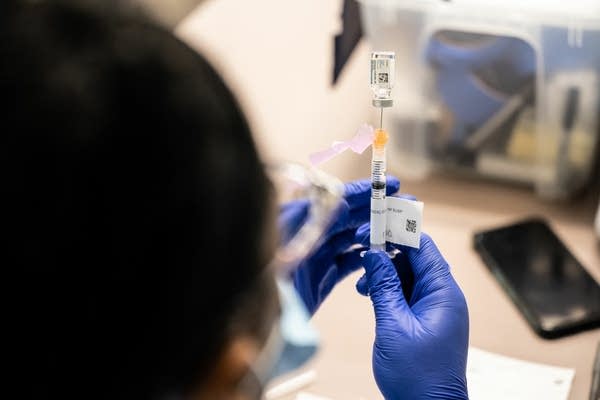Who isn’t getting the vaccine?

Go Deeper.
Create an account or log in to save stories.
Like this?
Thanks for liking this story! We have added it to a list of your favorite stories.
Overall, the news is encouraging. Two out of 5 American adults are now fully vaccinated. The daily average of new COVID-19 cases in the U.S. has fallen below 50,000 for the first time since October.
But it comes as vaccinations are plateauing. That concerns public health officials. The number of Americans who say they don’t want the vaccine has hovered around 20 percent for months.
When asked why, the reasons vary. Some say they already had COVID-19, so the vaccine isn’t necessary. Some are worried about long-term side effects. Others say the pandemic just isn’t a threat to them and their families.
It’s a worrisome trend. But public health officials believe more can be done. Monday, MPR News host Kerri Miller spoke with two leaders in public health who have ideas about why the vaccine hesitant are holding back, and what can be done to convince them to help end the pandemic.
Guests:
Dr. William Schaffner is a professor in the Division of Infectious Diseases at Vanderbilt University Medical Center.
Dr. Monica Gandhi is a professor of medicine and associate division chief of the Division of HIV, Infectious Diseases, and Global Medicine at UCSF/San Francisco General Hospital.
To listen to the full conversation you can use the audio player above.
Subscribe to the MPR News with Kerri Miller podcast on: Apple Podcasts, Google Podcasts, Spotify or RSS
Turn Up Your Support
MPR News helps you turn down the noise and build shared understanding. Turn up your support for this public resource and keep trusted journalism accessible to all.


